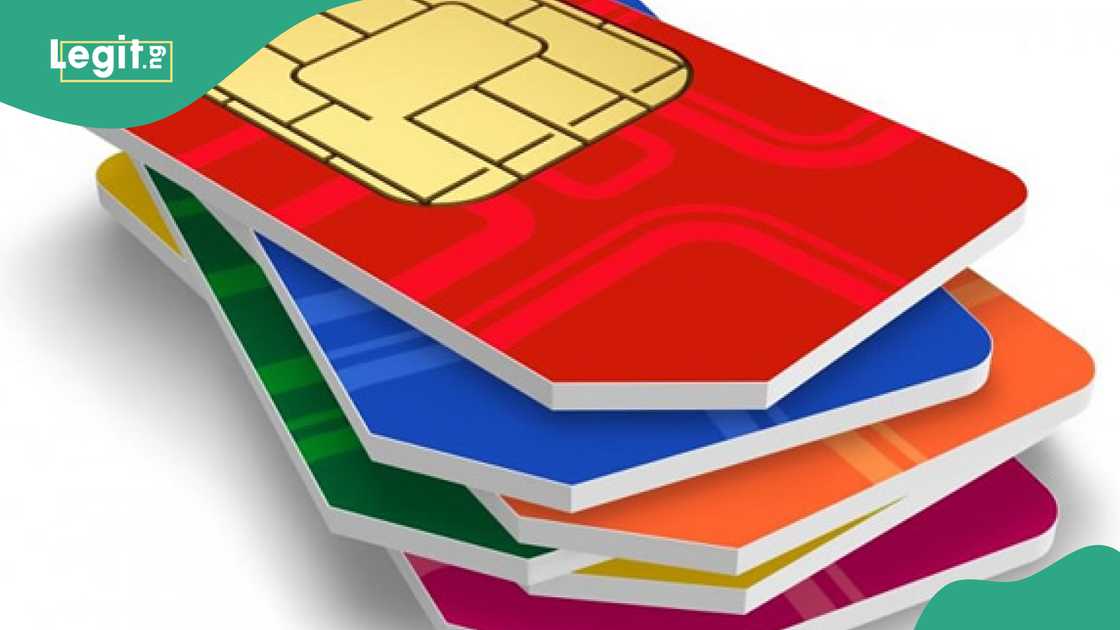How to Stop Your Nigerian SIM Card From Being Deactivated While Abroad
- Many Nigerians risk financial fraud and identity theft by leaving their SIM cards inactive while living abroad, as unused numbers can be legally recycled
- Major telecom providers like MTN, Glo, and 9Mobile offer services to keep SIM numbers active for up to three years to prevent deactivation
- Activating these retention plans before international travel is crucial to maintain access to essential services linked to your phone number
Legit.ng journalist Zainab Iwayemi has 5-year-experience covering the Economy, Technology, and Capital Market.
Many Nigerians, unaware of the risks, leave their Nigerian SIM cards inactive as more people move abroad in search of better opportunities.

Source: Getty Images
This seemingly innocuous lapse has resulted in SIM number recycling cases, which can expose unsuspecting former users to financial fraud and identity theft.
In Nigeria, recycling SIM cards is legal. The Nigerian Communications Commission's (NCC) Director of Public Affairs, Dr. Ikechukwu Adinde, stated that a SIM card or line that has been idle for up to a year can be recycled and sold to a new subscriber.
MTN, Glo, and 9Mobile, three of Nigeria's largest telecom companies, have launched services that let customers keep their numbers while travelling abroad to help avoid situations like this.
Here’s how each provider helps users stay connected and protected, according to a Tribune report:
MTN: Keep My Number (KMN)
MTN clients can use the Keep My Number (KMN) service to preserve their numbers for up to three years, regardless of inactivity. The KMN service is available to all prepaid subscribers.
The cost of subscription varies:
1 year: N511 (Dial *3651# or SMS “KMN1” to 36500)
2 years: N819 (Dial *3652# or SMS “KMN2” to 36500)
3 years: N1,228 (Dial *3653# or SMS “KMN3” to 36500)
After payment is verified, the number is kept active for the selected period, so you won’t have to worry about it being deactivated or reassigned.
Glo: ALWAYS ON Plan
The ALWAYS ON plan for Glo users keeps your SIM active for a whole year, even if you don’t use data, make calls, or send messages.
To activate:
Dial *777#, select “ALWAYS ON” from the menu, and follow the prompts.
A one-time payment of N500 is required for the service, which will be deducted from your primary account balance.
For tourists who want to stay away for longer than ninety days, this package is ideal.
9Mobile: Extended SIM Validity
The Extended SIM Validity service allows 9Mobile customers to maintain the validity of their SIM card. Both prepaid and postpaid subscribers can use it.
To subscribe, recharge N500 and text "1" to 539 or dial *5391#.
To check your subscription status, dial *539#.
This service helps avoid deactivation and recycling by extending the SIM’s validity by one year.
Although many Nigerians believe that linking their phone lines to their National Identification Number (NIN) protects them from deactivation, a dormant line can still be recycled even if it is linked to their NIN.
It is essential to activate these SIM retention plans before international travel to prevent fraud and preserve access to essential services connected to your number, such as social media, emails, and banking.

Read also
Register your business in 30 minutes as CAC integrates AI features for faster service delivery

Source: Getty Images
CBN urges telcos to produce SIM cards
Legit.ng reported that the Central Bank of Nigeria (CBN) called on companies in the telecommunications sector to consider local production of SIM cards and other components to save Foreign Exchange.
The CBN governor, Olayemi Cardoso, explained that adopting such backward integration strategies could encourage the growth of the sector and also reduce pressure on foreign exchange.
Cardoso noted that elements such as SIM cards, towers and cables could be produced locally to help the local economy, create jobs, and reduce the need for FX.
Proofreading by James Ojo, copy editor at Legit.ng.
Source: Legit.ng



